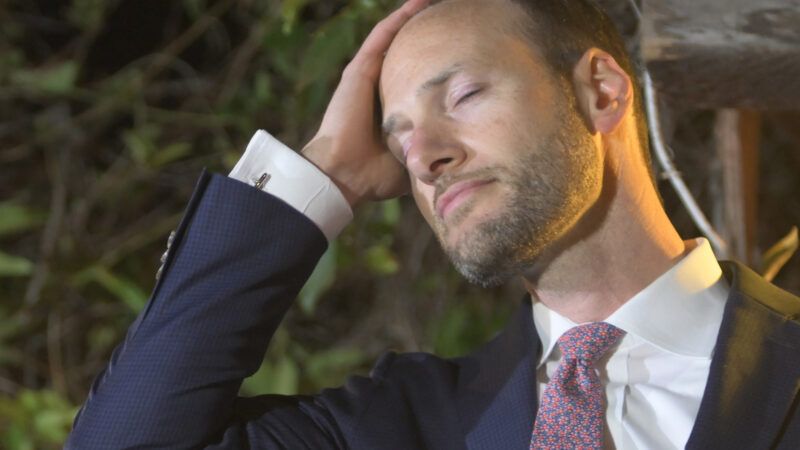After Chesa Boudin's Recall, What Is the Future of Criminal Justice Reform?
Research and data points may not be enough to persuade voters that something different is worth trying.

Last month, San Francisco recalled Chesa Boudin, its district attorney of just over two years. The son of 1960s radicals, Boudin was part of a new wave of progressive prosecutors focused on criminal justice reform, along with Larry Krasner of Philadelphia and Kim Foxx of Chicago. Boudin pledged to end cash bail, "mass incarceration," and the prosecution of "quality-of-life crimes."
But barely more than halfway into his term, San Franciscans showed Boudin the door, voting for the recall by a 10-point margin. Recall supporters cited a litany of reasons, among them rising crime rates and a perception that Boudin was not sufficiently enforcing the law. While it's not clear that San Francisco's rise in crime was incommensurate with the rest of the country, Boudin's tenure also saw internal strife, with half of the prosecutors in his office fired or quitting in under two years.
Mayor London Breed will appoint a replacement to serve out the rest of Boudin's term. But what do the results say about the broader criminal justice reform movement, and what lessons are reformers taking from Boudin's loss?
"The Boudin recall was an anomaly for a variety of reasons," but there are still "some lessons to be learned from it," Akhi Johnson, director of the Reshaping Prosecution Initiative at the Vera Institute of Justice, a nonprofit organization that advocates for criminal justice reform, told Reason. Johnson feels that Boudin came to personify every issue that San Francisco faced—crime, homelessness, public health—whether he was responsible or not. "Crime is complex," Johnson said, and blaming a single person for all of a city's problems is akin to "blaming a pilot any time there's a plane crash."
"Ultimately, the role of a prosecutor is not conviction, it is safety and justice," Johnson said. "When there is research and evidence that we can pursue safety in alternative ways from convictions, prosecutors have an obligation to explore those alternatives."
After the recall, Johnson acknowledges, "I don't think we can just stand on research and data… People are not moved by numbers, they're moved by stories." Advocates should focus on the real-life positive impacts of reform, Johnson says, while "making sure that safety is centered" in the narrative as well.
"The reform movement is about acknowledging the complexity of crime, and trying to address it through bolder solutions. A big part of that is reducing our reliance on incarceration."
Reformers advocate a "holistic" approach. Traditionally, convicted defendants are sent to prison or jail, where they are housed with other offenders, then eventually released with a felony conviction that makes it difficult to find work. Johnson advocates a more "restorative" approach, which involves a combination of intervention and restitution that seeks to reduce incentives to reoffend. The offender may be tasked with community service, job training programs, providing financial restitution to their victim, etc.
Of course, the movement is not without its critics. Efforts to de-emphasize prosecution and incarceration "stand in direct opposition to the traditional role of a district attorney," wrote Hannah Meyers, director of policing and public safety at the conservative Manhattan Institute.
Meyers says that prosecutors like Boudin, Krasner, and Foxx should be "leading the battle against criminal offenders—not simply against social wrongs they want to right." She cites multiple mandatory diversionary programs that prosecutors utilize against drugs and prostitution in Queens County, New York.
But her examples undercut her premise: In critiquing Boudin for "undercharging drug dealing," Meyers says he "left a vulnerable population without the firm helping hand that is the choice between treatment or jailtime." Some choice. Meyers' binary suggests support for drug court programs, in which nonviolent drug offenders must undergo addiction treatment, counseling, and random drug testing, in exchange for avoiding prison time. But in practice, drug courts can lead to more arrests rather than fewer, and more punitive punishments.
Meyers also favorably cites Queens County's Human Trafficking Intervention Court, consisting of "around 400 participants, most of them prostitutes, who were avoiding incarceration by accepting a suite of mandatory services including drug rehabilitation and social work." But "since prostitution is no longer being prosecuted," the number of pending cases "now hovers in the twenties. That's a shame for those women who otherwise remain in exploitative sex work."
Of course, sex work and human trafficking are not the same thing. The most dangerous thing about consensual sex work performed by adults is its criminalization, which takes the entire enterprise underground. While the intervention program is better than imprisonment, the method is the same: Police make arrests, and prosecutors lean on offenders to make deals.
Meyers does raise valid concerns: "In his brief [concession] speech, Boudin referenced the scourge of billionaires multiple times. But his electorate aren't worried about billionaires breaking into their cars or shuttering their local pharmacies through exhaustive shoplifting." Boudin regularly characterized the recall as "Republican-led," despite considerable bipartisan support for his ouster. And amid a weeks-long string of smash-and-grab robberies, locals likely want to see their law enforcement officials making arrests and prosecuting offenders.
But this doesn't mean that criminal justice reform should be abandoned, nor that its proponents will give up. Anytime a just resolution can be achieved without subjecting someone to a prison cell, it should be on the table. But as Johnson acknowledged, it will take more than research and data points to persuade voters that something different is worth trying.


Show Comments (33)